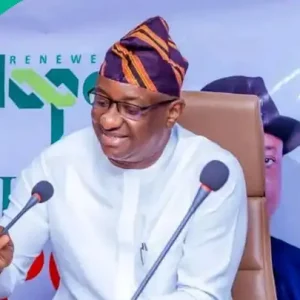President Bola Ahmed Tinubu must know one thing: most people in northern Nigeria feel that he has been unfair to the region in terms of his policy priorities and projects in relation to the electoral support he received from the region in 2023. There is scarcely a WhatsApp group, local radio station or small group “neighbourhood majalisa” where Tinubu’s overall relationship with the northern region has not been the subject of multiple discussions over the past two years or so. As a result, Dr Rabiu Musa Kwankwaso’s recent comments that Tinubu is concentrating Nigeria’s national resources in the south to the detriment of the north resonated strongly throughout the 19 northern states.
For me, Tinubu’s biggest problem is his deliberate or inadvertent political disengagement and lack of sustained communication with the northern region. No doubt, Tinubu has appointed a fairly large number of northerners to key positions in his government, as we saw in Kaduna last week. Yet, the optics of Tinubu’s presidency leaves much to be desired as his few public appearances continue to show him insulated among his small and closely-knit inner circle of Lagosian buddies. Moreover, until last week, Tinubu’s willingness to actively engage ordinary people and other critical stakeholders in the north was lacklustre at best, perhaps because he thinks he doesn’t need them much in 2027, since his strategy appears based only on crippling the opposition parties and forging a new coalition of the south plus northern minorities. He also missed good opportunities to turn the page of negative perception during his recent visits to Katsina and Benue. Rather than being shown in active discussions directly with stakeholders from the entire northwest and northcentral zones, the visits are remembered more by a billboard fiasco, Rarara’s “Omo Ologo” lyrics, and his reluctance to visit Benue in the first place.
All of these bring me to the two-day government-citizen engagement townhall convened by the Sardauna Foundation in Kaduna last week. It is only a first step, but I still see the event as a big win for Tinubu and his government. By accepting the challenge of popular scrutiny of his policies by northern civil society, by sending out the strongest federal delegation possible, and by giving people the opportunity to freely air their concerns directly to top government officials, Tinubu has crafted a new and useful template for deeper public engagement with the north and the rest of the country. How his negative perceptions shift from this point will depend on how well he utilises this new-found template.

Beyond his unwillingness to engage meaningfully with a voting bloc on whose tails he rode to power, Tinubu’s political actions in the north are another sticky point. Tinubu is digging up the old ghosts of divisive religious politics within the northern region and fanning up anew the dangerous rhetoric associated with it, as we saw in some instances in Benue last Tuesday. And this is not to talk of his open political interference in Kano’s emirate tussle. But his policy priorities and actions are even more striking in their disregard of northern feelings. This government has been pumping billions of dollars in borrowed funds for infrastructure projects throughout southern Nigeria, with nowhere near a corresponding attention for the north. Where the north is given attention at all, it tends to be an afterthought following a backlash, as in the cases of Abuja-Kaduna-Kano and the Badagry-Sokoto road projects. Regardless of the level of completion of these projects, the sense of unequal and unfair regional consideration is unmistakable, and is justifiably a major reason for northern sense of betrayal.
In his speech at the Kaduna townhall last week, the Chairman of the Board of Trustees of the Arewa Consultative Forum (ACF), Alhaji Bashir Dalhatu the most far-reaching and feasible structural and social development blueprint for Nigeria, not just the north, I have yet read in a single piece. Avoiding politics and focusing solely on policy, he identifies key areas of federal intervention, including security, agriculture, integrated transport infrastructure of rail, road and waterways, electricity, education, health, steel development, and oil exploration. To these, I would add housing.
Yet, it is impossible to read his speech without feeling a deep regret about how and where Buhari and the northern governors failed the north. The north’s 5.6 million votes for Tinubu in 2023, or 64 per cent his
total 8.7 million, was repeated several times by many speakers at that event, but we cannot escape the fact that the north gave Buhari more than 60 million votes in his political career over four consecutive presidential elections to do some of the very things the Wazirin Dutse succinctly listed in his speech. No president can do all of these things for any nation or its regions during even two terms. So, should Tinubu wish to reengage meaningfully with the northern region by way of policy, all he needs to do is to focus on just one or two of the areas the ACF BOT chair mentioned—Ajaokuta steel or the waterways plus the dredging of Rivers Niger and Benue say—and complete them.
Some people have misread the point above to argue that northerners have no right to complain under Tinubu since they did not do so under Buhari who, they say, didn’t do much for them either. This argument is both nonsense and politically useless. It is nonsense first because all Nigerians share and express support or opposition to leaders based on their ethnic, religious and regional affiliations than empirical evidence on policy. Buhari, for example, was excoriated by the southern press for the higher rates of inflation, fuel prices, and foreign exchange under his administration than under former President Jonathan, all of which are true. However, all three indices have gotten worse more than five times under Tinubu in just two years, yet much of the same press now wears gloves in its critical scrutiny.
Moreover, by at least 2020, Buhari’s support in the north had ebbed considerably, which is why his party’s presidential candidate got only 5.6 million votes in 2023, just about one-third of what they did in 2015 and 2019. I also believe the Daily Trust published some of the most intellectually serious and revealing editorial critiques of Buhari’s government throughout. I know that because as chair of the paper’s editorial board and deputy chair of the newsroom for much of Buhari’s second term, I read almost all the editorials and major news stories published by other leading newspapers at the time. It simply isn’t true that northerners were entirely silent under Buhari; and now, they have every right to raise their voices if they feel the Tinubu government has been unfair to them, as people down south have done in this country since even before 1960, often unjustifiably.
Finally, Tinubu’s problems with the north are complicated by the fierce rivalry for present and future favours among the most senior northern politicians within his government and the 19 state governors. This competition for largely personal space has weakened the north’s representatives in both the executive and legislative branches of the federal government. It has also simultaneously strengthened Tinubu’s hand to effectively divide the north and rule it, such that the whole region is the loser. The north must relearn this lesson, but for Tinubu, the election of 2015 has shown us that even northern governors cannot stop an electoral tsunami when the feelings of ordinary voters reach a crescendo. If the President means business with the north, and the ADC coalition means he now must, he would need to build direct bridges with ordinary northern voters in his policies, actions, and communications.
Stay ahead with the latest updates!
Join The Podium Media on WhatsApp for real-time news alerts, breaking stories, and exclusive content delivered straight to your phone. Don’t miss a headline — subscribe now!
Chat with Us on WhatsApp





